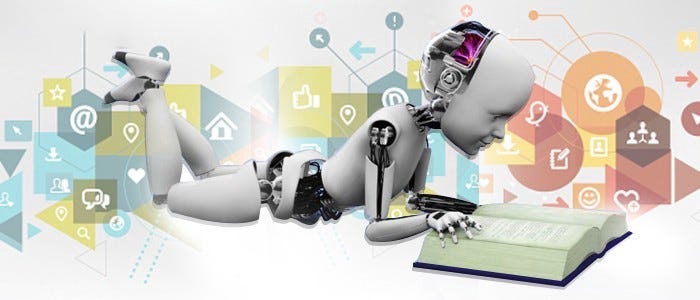| | | Real time Applications of Machine Learning & it’s impact on different businesses
ISHITA G
Nvidia defines machine learning as “The practice of using algorithms to parse data, learn from it, and then make a determination or prediction about something in the world.” McKinsey&Company agree with Nvidia, saying that machine learning is “Based on algorithms that can learn from data without relying on rules-based programming.” Stanford suggests that machine learning is “the science of getting computers to act without being explicitly programmed.”

Photos by Mika Baumeister on Unsplash
And Carnegie Mellon’s definition — also a favorite of many other experts in the machine learning industry states “The field of Machine Learning seeks to answer the question -How can we build computer systems that automatically improve with experience, and what are the fundamental laws that govern all learning processes?”
Regardless of the definition you choose, at its most basic level, the goal of machine learning is to adapt to new data independently and make decisions and recommendations based on thousands of calculations and analyses. It’s done by infusing artificial intelligence machines or deep learning business applications from the data they’re fed. Machine learning models learn, identify patterns, and make decisions with minimal intervention from humans. Ideally, machines increase accuracy and efficiency and remove (or greatly reduce) the possibility of human error.
Industries that use Machine Learning and how it’s affecting their businesses ?
Healthcare: The proliferation of wearable sensors and devices that monitor everything from pulse rates and steps walked to oxygen and sugar levels and even sleeping patterns have generated a significant volume of data that enables doctors to assess their patients’ health in real-time.
Government: Systems that use machine learning enable government officials to use data to predict potential future scenarios and adapt to rapidly changing situations. Machine learning can help to improve cybersecurity and cyber intelligence, support counterterrorism efforts, optimize operational preparedness, logistics management, and predictive maintenance, and reduce failure rates.
Marketing and sales: Machine learning is even revolutionizing the marketing sector as many companies have successfully implemented artificial intelligence (AI) and machine learning to increase and enhance customer satisfaction by over 10%. In fact, according to Forbes, “57% of enterprise executives believe that the most important growth benefit of AI and machine learning will be improving customer experiences and support.
E-commerce and social media sites use machine learning to analyze your buying and search history — and make recommendations on other items to purchase, based on your past habits. Many experts theorize that the future of retail will be driven by AI and machine learning as deep learning business applications become even more adept at capturing, analyzing, and using data to personalize individuals’ shopping experiences and develop customized targeted marketing campaigns.
Transportation: Efficiency and accuracy are key to profitability within this sector; so is the ability to predict and mitigate potential problems. Machine learning’s data analysis and modeling functions dovetail perfectly with businesses within the delivery, public transportation, and freight transport sectors. Machine learning uses algorithms to find factors that positively and negatively impact a supply chain’s success, making machine learning a critical component within supply chain management.
Financial services: The insights provided by machine learning in this industry allow investors to identify new opportunities or know when to trade. Data mining pinpoints high-risk clients and informs cyber surveillance to find and mitigate signs of fraud. Machine learning can help calibrate financial portfolios or assess risk for loans and insurance underwriting.
The future of AI and machine learning in this industry include an ability to evaluate hedge funds and analyze stock market movement to make financial recommendations. Machine learning may render usernames, passwords, and security questions obsolete by taking anomaly -detection to the next level: facial or voice recognition, or other biometric data.
Oil and gas: Machine learning and AI are already working to find new energy sources and analyze mineral deposits in the ground, predict refinery sensor failure, and streamline oil distribution to increase efficiency and shrink costs. Machine learning is revolutionizing the industry with its case-based reasoning, reservoir modeling, and drill floor automation, too. And above all, machine learning is helping to make this dangerous industry safer.
Manufacturing: Machine learning is no stranger to the vast manufacturing industry, either. Machine learning applications in manufacturing are about accomplishing the goal of improving operations from conceptualization to final delivery, significantly reducing error rates, improving predictive maintenance, and increasing inventory turn.

Within logistics, machine learning facilitates the ability of schedulers to optimize carrier selection, rating, routing, and QC processes, which saves money and improves efficiency. Machine learning’s ability to analyze thousands of data points simultaneously and apply algorithms more quickly than any human enables machine learning to solve problems that people haven’t yet identified.
Hope you found this article useful, Happy Learning!
medium.com |
|





